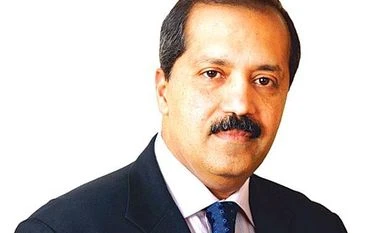He said the financial services arm of KIFS (KKR India Financial Services) was a holding company, with around Rs 5,000 crore in capital; with two non-bank financial companies (NBFCs), one financing real estate developers and the other for corporates. SME lending is a space that is populated with plenty of competition and seeing a lot of action. Indostar Capital, Tata Capital and Bajaj Finserv are examples of established players.
“Strong momentum of returns and growth of quality loan books have attracted investors to the space,” says Kartick Maheshwari, partner at law firm Khaitan & Co. He says recent instances of shareholder value created by SME lenders include Satin Credit Care (where some Nordic and other impact investors saw exponential returns), Temasek-Fullerton, TPG-Shriram, Kedaara-Spandana Sphoorthy, IFC-Bandhan, IFC-Aadhaar Housing Finance and Temasek-AU Financiers.
Housing finance businesses are virtually anti-cyclical, with historically low default rates and good screening policies that have helped avoid any US sub-prime type issues in India, Maheshwari adds.
The bigger question is why KKR wants to get into such a business and how it aims to stand out. “We think we can do this business differently,” Nayar says. He adds that ex-Axis Bank chief Shikha Sharma’s presence as adviser (announced recently) is one factor that will be an edge in thinking through and refining the business model. She will also, based on her background in credit and building a bank, help with the implementation of risk-management programmes, a data-driven business, and put the right team in place.
He goes on to say that the business could be grown either organically or inorganically, depending on opportunities. “It is likely to be a combination of both.”
The task at hand will be building an entirely different culture, Nayar says. “Given recent market uncertainty and lack of credit flow, it’s quite possible to buy something small, reinvigorate, then re-christen it, and let it take flight.”
Are KIFS’ systems set up to handle the risk of defaults by smaller ventures? The plan is to help build the business with purpose-based lending, as opposed to LAP (loan against property)-based lending. “Today, there is Aadhaar, CIBIL scores and better rules, along with fantastic digital connectivity,” Nayar thinks.
The SME business, with around $100 million (around Rs 700 crore) carved out for it initially, is expected to constitute around a quarter of KIFS business in the next three to five years. In the past two months, KKR disbursed Rs 1,500 crore in its real estate NBFC and Rs 1,000 crore in its corporate NBFC, Nayar adds.
Has KKR’s lending business grown to be much bigger than its pure-play private equity (PE) business? Nayar says: “PE is KKR’s core business, where they invest out of their Asia PE fund and have recently signed up two large control deals, in health care and waste management. These PE investments play to KKR’s strength of operational and global value add, and can result in returns in far greater multiples than the financing business.”
To read the full story, Subscribe Now at just Rs 249 a month
Already a subscriber? Log in
Subscribe To BS Premium
₹249
Renews automatically
₹1699₹1999
Opt for auto renewal and save Rs. 300 Renews automatically
₹1999
What you get on BS Premium?
-
Unlock 30+ premium stories daily hand-picked by our editors, across devices on browser and app.
-
Pick your 5 favourite companies, get a daily email with all news updates on them.
Full access to our intuitive epaper - clip, save, share articles from any device; newspaper archives from 2006.
Preferential invites to Business Standard events.
Curated newsletters on markets, personal finance, policy & politics, start-ups, technology, and more.
Need More Information - write to us at assist@bsmail.in
)